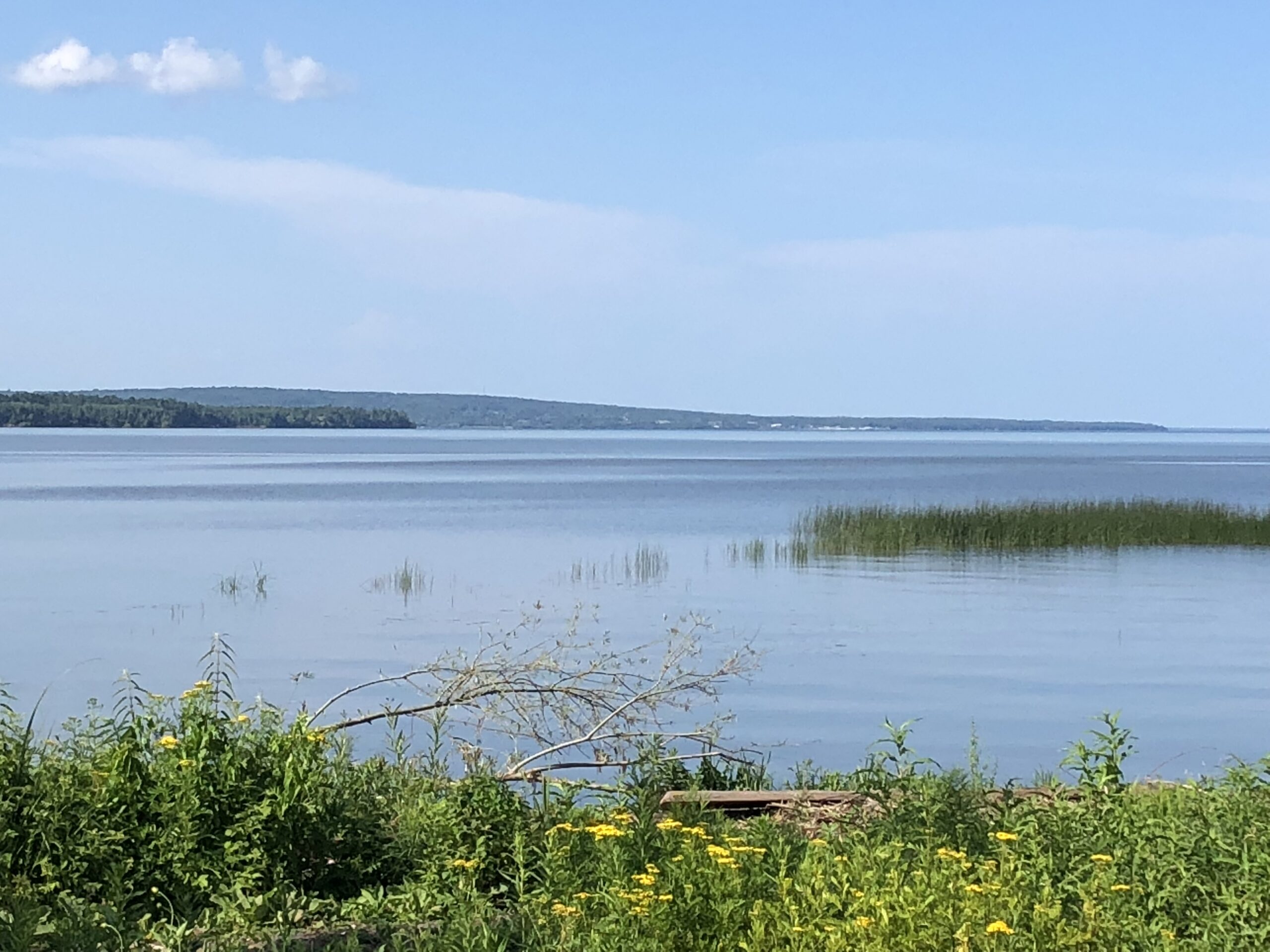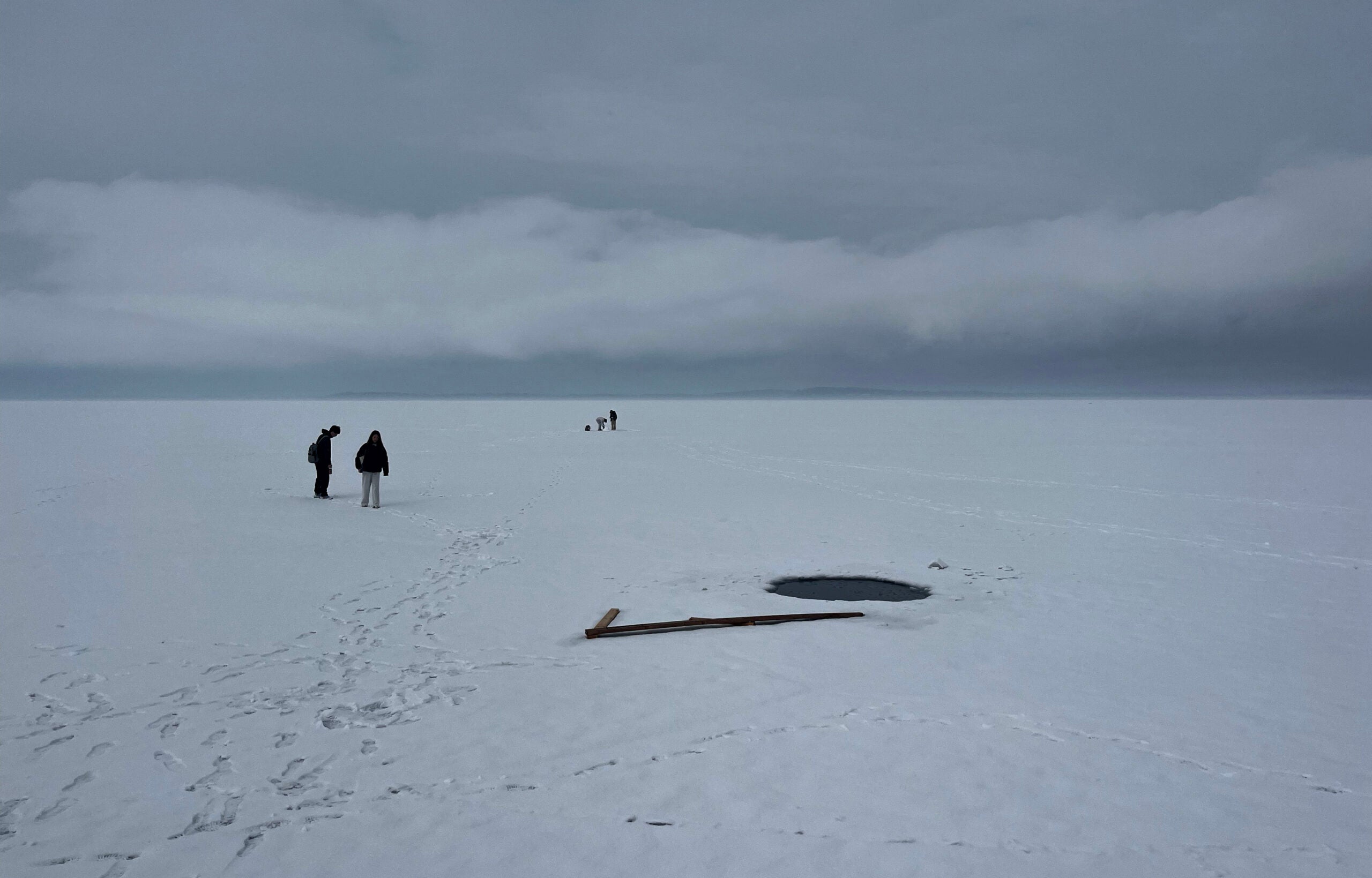Visitors to Ashland can often be spotted on the water during the summer months, but this summer has been anything but normal for business owner Katie Gellatly.
“We’re at least 90 percent down with our kayak and paddle board rentals and tours,” she said. “It’s almost not like summer for us when less people are out on the water and playing.”
In a typical week, the owner of Solstice Outdoors said their fleet of eight kayaks and eight paddleboards would be rented out two to three times daily. However, Gellatly said flooding washed clay sediments into the bay, turning it red. She said that, combined with elevated levels of e. Coli bacteria on a nearby public beach, has made it difficult to draw in business.
News with a little more humanity
WPR’s “Wisconsin Today” newsletter keeps you connected to the state you love without feeling overwhelmed. No paywall. No agenda. No corporate filter.
“Our policy is if the beach is closed we do shut down our rentals of kayaks and paddleboards just from a safety and liability standpoint,” she said.
The city has listed advisories or closed beaches to swimmers and visitors several times this summer due to elevated levels of bacteria, but its artesian well and drinking water have been found safe to drink.
Gellatly is not the only business owner to contend with the impacts of recent flooding. Ashland resident Dave Sorenson runs Dave’s Fishing Charters out of Bayfield. He said he’s doing about half as much business as a normal summer.
“It was a severe impact. What happened is that the highways being destroyed turned people off from coming up here and the weather was less than conducive to promoting tourism … The floods literally muddied all the waters,” he said. “All the years that I’ve been fishing up here, I have never seen the mud not only as thick but last as long as it did this year.”
Angler’s All is a bait shop in Ashland that also provides guided fishing trips in the Chequamegon Bay and Apostle Islands region of Lake Superior. Owner Carolyn Swartz said road washouts and misinformation impacted her business immediately after the flooding.
“From a standpoint of people wanting to come here, they got cut off from the west and they got cut off from the south for a little while. There were detours, but all of that has been taken care of other than the Highway 2 detour,” she said. “People were hesitant to come, but a lot of people didn’t come because they read things on the internet that the bay would be unfishable because it was too dirty.”
However, Swartz said things have returned to normal, and people have hauled in trout and salmon on Lake Superior.
“Not that we like to see a lot of mud and silt coming into the bay or the big lake, but sometimes when you get mud lines where you can actually see the difference in the water quality, fish like to hide in that,” she said. “That can be very productive fishing moving along the mud line.”
Further west, Superior-Douglas County Chamber of Commerce president and CEO Taylor Pedersen said the flooding hasn’t had a major impact on visitors to Douglas County.
“The one thing it definitely has affected is the ATV/UTV trails throughout the county, and some of that tourism has been affected because even to this day some of our ATV/UTV trails are shut down.”
Still, Pedersen said hotel bookings are similar to normal summers.
“I probably should say that we’re very lucky that we fared the way we did,” he said. “There’s other counties near us that definitely were impacted.”
Regional tourism officials agree, noting some businesses were affected more than others.
In flood-affected areas, revenues generated through retail sales reveal mixed results about spending in the region. In Ashland County, sales tax revenues dipped about six percent in June and nine percent in July compared to the same time last year. In Bayfield County, sales tax revenues increased about seven percent year-over-year in June but fell about eight percent in July from the same time last year. In Douglas County, sales tax revenues climbed both months at five percent in June and 11 percent in July.
Wisconsin Public Radio, © Copyright 2026, Board of Regents of the University of Wisconsin System and Wisconsin Educational Communications Board.







